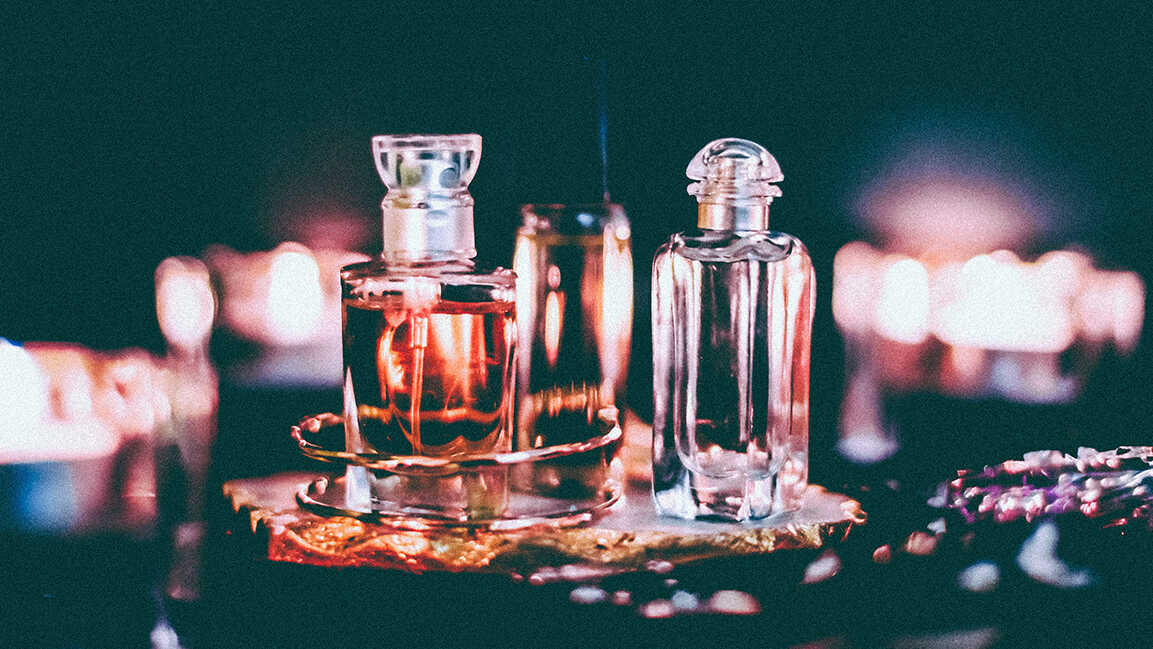- | 10:00 am
The Gulf’s perfume obsession is changing how the world thinks about scent
The GCC is redefining luxury through scent, where heritage, science, and emotion blend into the new language of fragrance.

In the Gulf, perfume has evolved beyond something you simply spritz on. It has become a full-blown personality marker. Every note of oud, musk, or rose acts like a badge of style, culture, and understated luxury. Some people even plan their outfits around the fragrance they will wear each day.
From the first morning hit of oud to the careful layering before an evening event, scent does more than accompany life. It shapes it. No wonder the region’s passion for fragrance has evolved into a multi-billion-riyal industry, where centuries-old traditions blend with a nonstop wave of fresh ideas.
BEYOND CLICHES
Many people outside the region assume that consumers in the GCC only favor strong, overpowering perfumes. In reality, GCC consumers are highly discerning and attuned to the nuances of fine perfumery. Sabrya Meflah, President of International Flavors & Fragrances (IFF), emphasizes that their appreciation extends well beyond bold scents to the subtle complexities of fragrance craftsmanship.
“In reality, GCC consumers appreciate nuanced luxury—depth, yes, performance, certainly, but also refinement and modernity. They’re highly educated about perfumery and expect innovation beyond clichés. They want authenticity, but also crave novelty and personalization,” Meflah says.
Oud has long been a globally recognized fragrance ingredient, but the trend is now moving toward mukhallat-inspired layering techniques and the use of pure attars. These traditional elements are gaining international popularity due to the rich sensory experiences they offer.
More than just scent, they offer a ritualistic, intimate, and highly personalized approach to fragrance. In a fast-paced digital world where many crave deeper connections, these practices provide a sense of grounding and an artistic expression that feels both timeless and adaptable across cultures.
THE GCC AS A CREATIVE FORCE
For Meflah, the evolving fragrance scene reflects more than shifting tastes; it is a cultural conversation that positions the Gulf as a creative force in the global perfumery industry. “The GCC is no longer just a regional powerhouse. It is a global trendsetter. We are seeing a surge in olfactive sophistication, with consumers embracing layered scents and artisanal blends,” she says.
“Their appetite for intensity, longevity, and storytelling is shaping our global roadmap.”
When asked if companies are now prioritizing GCC-first launches for their fragrances, her answer is an emphatic yes.
“The region is a creative laboratory. GCC-first launches allow us to test concepts in a market that values craftsmanship and exclusivity. These ideas often resonate globally, especially with Gen Z and luxury consumers in the US and Latin America, who are increasingly drawn to Middle Eastern signatures,” she explains.
That influence is evident in how luxury houses worldwide now approach scent storytelling, introducing ritual, emotion, and depth inspired by Arab perfumery. What began as a niche aesthetic has grown into a universal language of intimacy, identity, and personal expression.
THE SCIENCE OF EMOTION
Meflah believes the next frontier in perfumery is not just about scent but about emotion. “The fusion of emotion-driven design with neuroscience is thrilling,” she says. At IFF, perfumers are developing fragrances that do more than smell appealing. They are scientifically crafted to evoke specific emotional states using proprietary tools like the Science of Wellness.
Innovation at IFF also extends to sustainability. The company’s LMR Naturals division has been pioneering ethical sourcing and traceability long before it became an industry standard. “We are leveraging biotech for renewable molecules, reducing environmental impact without compromising olfactive quality,” Meflah explains.
For her, real progress comes from harmony rather than opposition. The evolving world of fragrance no longer requires a choice between natural ingredients and biotechnology. Both are viewed as complementary rather than competing forces.
Natural ingredients provide authenticity and emotional depth, often described as the “soul” of a perfume. They carry cultural and sensory significance that connects people to nature and heritage. “The win-win comes when we use biotech to protect biodiversity and naturals to preserve artistry, creating fragrances that are both ethical and emotionally resonant,” she says.
As consumers become more selective, retail is evolving into a theatre. “Immersive storytelling spaces, where fragrance is experienced through multi-sensory journeys, are universal,” Meflah says. “Think curated rituals, personalization bars, and collaborations with artists and perfumers that elevate perfumery into an art form.”
The region’s relationship with perfume also carries a strong social dimension. “Perfume is a cultural connector, a marker of generosity and taste,” Meflah notes. In Saudi Arabia, IFF research indicates that 46 percent of consumers opt for perfume as their go-to gift. Rituals around gifting, weddings, and national celebrations drive much of the market’s energy, turning perfume into both a personal and collective expression. “This trend is shaping global luxury gifting strategies from Paris to Dubai, New York, São Paulo, Doha, and beyond,” she adds.







































